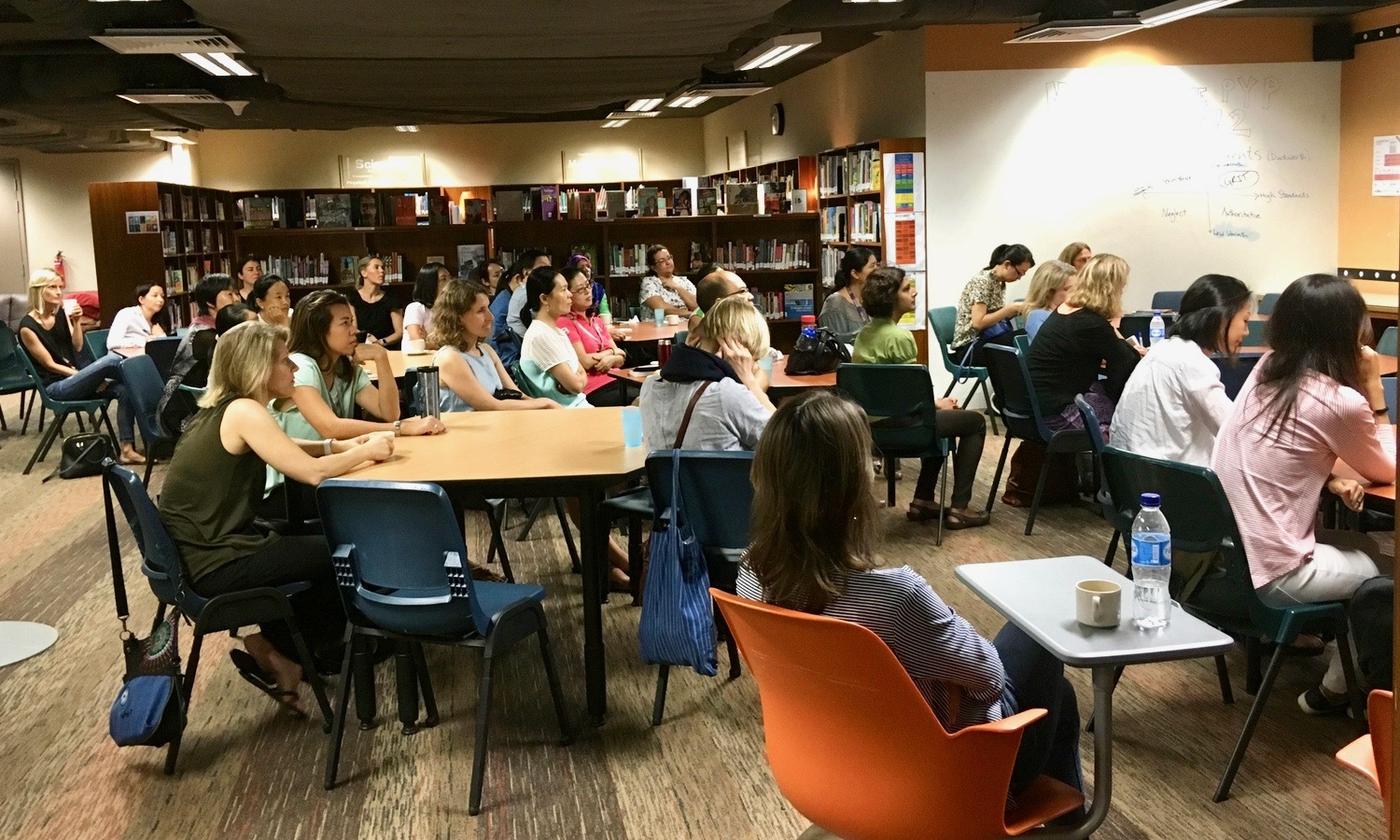Fostering resilience and GRIT

One of the challenges faced by children and young people in today’s world of rapid and constant change is how to manage the resulting stress that is part of their daily life. In and of itself, stress is not a negative thing. Some level of stress propels us to growth (referred to as eustress), but when it becomes too much or too constant, it becomes debilitating (distress). On Tuesday November 21, our school counsellors, Gaius Tan (PreK to grade 3), Kristy Finlay (grades 7-12) and our school psychologist, Dr Mifrando Obach directly addressed this issue during their parent info session, “Fostering Resilience and Grit among our Children and Youth.” 1
Our bodies developed a physiological and behavioral response to stress that is often referred to as the “fight or flight response”. This response is an adaptive function that allows us to survive in the face of a significant stressor, such as a life-threatening event. However, it is less adaptive in the face of modern day stressors such as being caught in a traffic jam on the way to work or sitting down to write an exam. And at a time when change is the new normal, and as it is happening more quickly than in the past, the body’s capacity to adapt to the modern day stressors is pushed to the limit and exhausts its system, resulting in weakened immune system, less psychological well-being, disease, and even, in extreme cases, death.
The good news is that we can augment and moderate our body’s responses to modern day stressors including mobility. Human beings have evolved to become social animals and research has shown us that social support is one way to bolster our adaptive response to stress.
Another way to cope is to use the capacity of our evolved brains. Learning to change how we view stressful events that stem from self-defeating thoughts (“beliefs”) to more positive perspectives decreases the occurrence of negative emotional responses associated with stress. For example, rather than thinking of an upcoming presentation as yet another demonstration of how awkward you are at public speaking, it is more helpful to think of it more as just another opportunity to share knowledge. Such change in perspective will change the level of anxiety the presentation provokes in you. Learning how to view stressors in a more positive, less threatening light, can greatly enhance our ability to deal with the events of day-to-day life.
A third way is to give our autonomic nervous system “time-off” by choosing to schedule “moments of silence” as part of our daily life routine. Physiologically, the brain needs time to rebound and to recharge its “cognitive batteries” from daily stressors. This can be accomplished by doing mindfulness exercises, meditating, practicing tai chi or yoga, dancing or even something as simple as walking quietly in the park or on the beach.
These three factors have been proven to enhance our ability to be resilient. That capacity to bounce back after a significant stressor (or setback) is experienced. Parents can nurture to develop this resilience among their children in the face of daily stressors by providing a family structure (“social support”) with consistent expectations and predictable outcomes.
In a world that is highly mobile, it is comforting for students to have dependable social structures they can lean on. As parents, our instinct is to protect our children from negative experiences in life. It is better, however, to model and to teach them that how to talk to themselves when faced with these negative experiences. These experiences of failure or blocked goals are opportunities for them to understand their own beliefs about failure or frustration, to learn that they can change these beliefs, and to choose to get back up and to continue pursuing what they want to pursue.
This is what Angela Duckworth, an American psychologist, refers to as GRIT. Grit refers to the characteristic that enables people to persevere and to pursue one’s passion. In her research, Duckworth discovered that grit is a better predictor of success than IQ, financial status, or education. She posits that grit is best fostered when parents and caregivers have high expectations for their children accompanied by a warm and supportive parenting style. And these high expectations must be consistent with what their children are passionate about. Without passion for an inspiring goal, it is difficult for them to persevere when they experience the inevitable bumps in the road. Finally, Duckworth reminded us that “grit is living life like it’s a marathon and not a sprint”!
1Ms. Afizah Ahmad (grades 4-6 counsellor) was instrumental in the planning of this session, but was unfortunately unable to present.